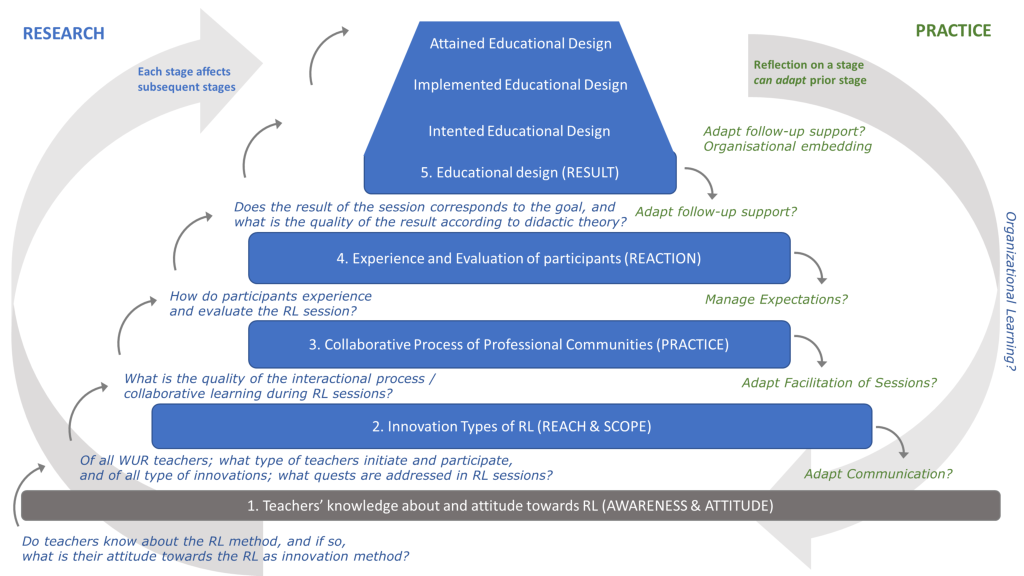Project introduction and background information
The Redesign Lab is a method developed by Wageningen University and Research to (re)design a course or a set of courses, such as a specialization, learning pathway, or study program. The method helps to support and stimulate structural educational innovations that involve multiple stakeholders. The method is based on collaborative methods to facilitate the interaction between teachers, educational experts, program directors, students and other stakeholders. The method has been tested in practice for optimization and is now ready to be promoted and applied more widely in 2020 and 2021. This research project will evaluate the effectiveness of the method.
Objective and expected outcomes
The aim is to understand how the various characteristics of the Redesign Lab method have an effect on participants, education and the organization.
This requires an analysis of 1) the methodology applied in the RL sessions itself (defining and disentangling the Redesign Lab method in practice), and 2) how these factors have an effect on participants’ experiences and evaluations; professional development and team learning; the intended, implemented and attained educational designs, and; the educational innovation at the WUR more generally.
Based on a literature review and experiences and evaluations of similar educational innovation projects in higher education (reports and interviews with experts), we hypothesize that the effectiveness of the Redesign Lab depends on the following, succeeding factors:
- Teachers’ knowledge about and attitude towards RL (awareness and attitude)
- The type of teachers that participate, and the type of innovations addressed (reach and scope)
- The quality of the interactional process / collaborative learning during RL sessions (practice)
- The experience and evaluation of participants on RL sessions (reaction)
- The effects on the educational design (intended, implemented and attained) (result)
- The perceived professional development of teachers (learning)
- Organizational adaptive learning during the innovation process (reflect & adapt)
This research project will be continued the second half of 2020. In the meantime, we investigate the transition to online education: See related project.

